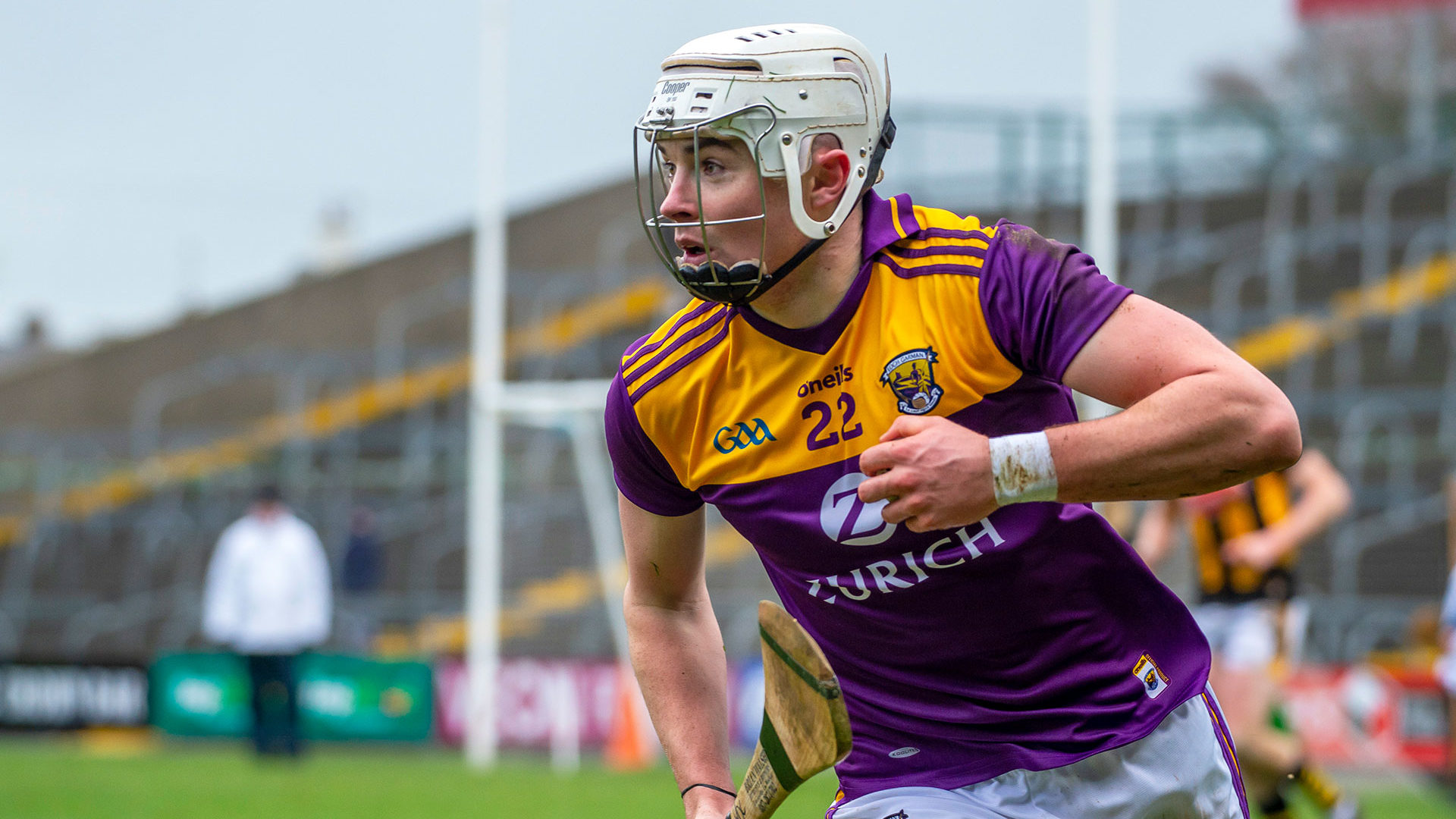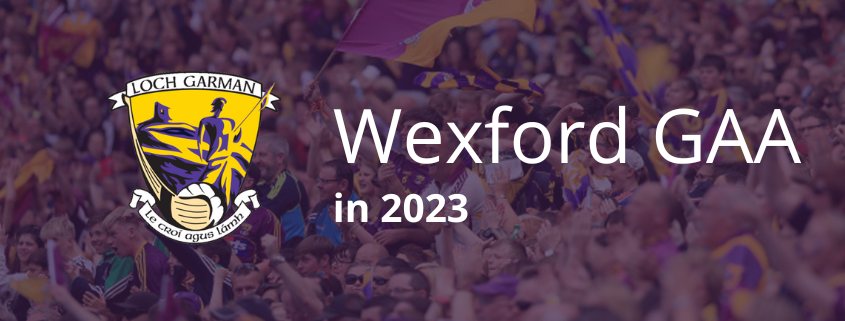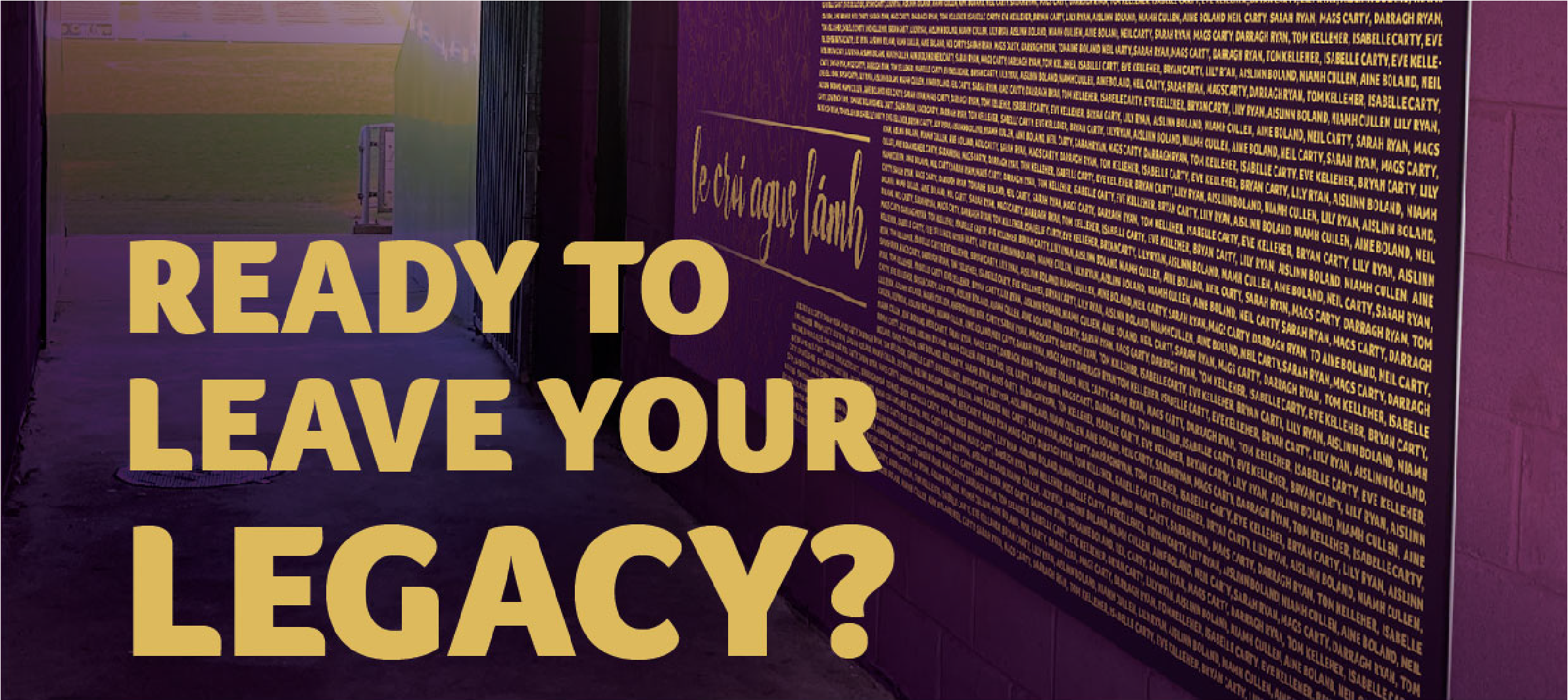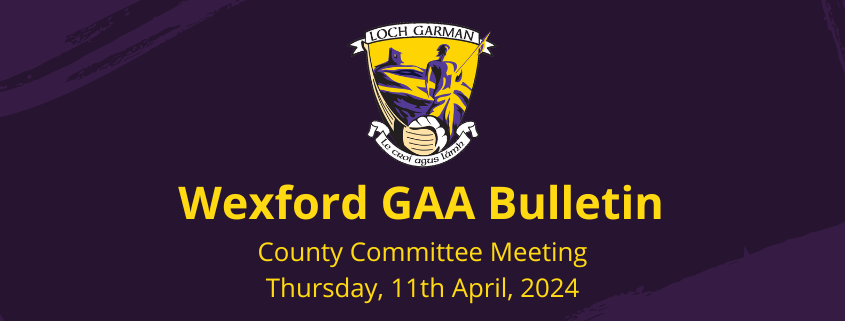Context
There is no doubt but that the GAA is changing at a faster pace than ever before. While there are changes required at national level, Wexford GAA must adapt quickly with a view to future proofing our games at all levels. The decisions made now have an influence on future development. Often decisions are made (especially at national level) without considering the unintended consequences or decisions are reversed without allowing time to fully implement the plan.
The purpose of this document is to highlight the challenges in our own county, provoke conversation and outline options and proposals for discussion. Some or all of these proposals may be challenged, ridiculed or disregarded but it is better to have the conversation within our clubs and committees rather than the increasing tendency for members to take to social media to express views and issues without suggesting solutions or making the effort to join a club or county committee.
A Dual County in the Modern GAA
The role of GAA since it`s foundation has been to promote both hurling and football equally. In 1887, Michael Cusack wrote to the Wexford County Board and lamented the lack of progress in developing hurling while Gaelic football was thriving across the county. Since then, Wexford has made every endeavor to promote both codes and from nursery to adult it is estimated that over 90% of players actively play both codes.
There is no doubt but that hurling is the game that has the most followers in our county and the tactics being coached in Gaelic football over the last decade has done nothing to increase interest. This is highlighted by the stats below from the 2022/23 championships.

Of more concern is the lack of support for football initiatives in our county. Gaelic football has possibly received more attention and more man hours from officers in recent years. However, interest in getting involved in initiatives or development squads is exceptionally low despite a very small group (mainly those on social media) claiming that football is not treated equally in our county.
The recent establishment of a football development committee chaired by David Murphy and Seamus Hughes is crucial to providing a heartbeat for football in our county and we are lucky that our current senior panel are determined to work on and off the pitch in an attempt to grow the game. They have also brought forward suggestions to improve the game as a spectacle. If this does not happen, the support level across Ireland will continue to drop with even Kerry and Mayo seeing a recent drop in attendances at club games.
While there is a national debate as to the need for support to develop hurling in non-traditional areas, there is no suggestion for additional support for a club or county who genuinely promotes both codes equally, despite the additional cost, additional administration and significant amount of extra time required. By way of illustration, Central Council have recently adopted a Development Squad calendar for 2024 that makes it increasingly difficult to develop the skills of a dual player with the policy more suited to single code counties.
Fixtures Programme – Adult
If we are to accept that we continue to promote both codes equally, we must tailor our decisions regarding our fixtures programme and coaching to match our context. The introduction of July All-Irelands with the county/club seasons split has added a new dimension to the organization of club games. Where before, the April club month ensured that club leagues were meaningful in March, the start of club championship is now July. This has reduced the meaningfulness of the club League and increased the importance of championships as the mainstay of a player’s season. This leaves an approximate sixteen-week window to play our competitions if we are to be ready for Leinster competitions. In 2024, it is likely that we will have an additional two weekends with a November start for Leinster championships with thanks to Leinster Chair Derek Kent who has a deep understanding of the demands of a dual county.
The additional weeks will copper fasten the ability to continue with groups of six in the short term. However, we can make changes to the groups of six to ensure that the competitions are more intense right up to the final stages of group games. Rewarding the top team in each group with a bye to semi-final would be for the betterment of the competition.
Our league competitions need to be enhanced to make it more meaningful and the link to championship was recently discussed at Co Committee. It is worth trialing a system that rewards league performance and the introduction of a bonus point for winning teams deserves consideration as a starting point. The hurling/football split season was initially introduced during covid and players immediately enjoyed the novelty factor which allowed a focus on one code at a time. Outside the county there is often bemusement that the overwhelming majority of players are dual and would actively play both codes for their club team. In the context of our dual status, it is an obvious solution, albeit the small percentage of single code players are adversely affected. While the benefits are obvious for dual players and for strong dual clubs, as it lessens the clashes between coaches etc. there are obvious pitfalls in terms of the condensed nature of games, the loss of promotional opportunities for clubs leading into a final and the long gaps without games for single code players, or for the winners of our hurling championship. It is timely for us to return to alternating codes with blocks of games every two weekends. This will allow a comparison between our current system and the alternate system which has never been used since All-Ireland’s moved to July.
The investment into facilities by Wexford clubs since 2000 could easily extend beyond €50 million. Since 2017, Wexford GAA has spent approximately €3 million on the development of facilities and will spend another €3million in the next five years. From 2024, facilities should not be a barrier to the provision of a comprehensive games programme at any age. We will have seven pitches in Halo Tiles COE that are as close to all weather as one can get without using artificial surface. Despite the development of these pitches, our agreement to facilitate LGFA and Camogie will continue to put pressure on pitch availability. The sale of 28 acres of land at our Centre of Excellence in 2013 highlights that the decisions (in good faith) we make now can have a knock-on effect ten years later. In this instance, our decisions on structures now will dictate player retention and overall performance in the future.
Competitiveness and Standard
The Senior hurling and football championships of 2023 saw a concerning trend emerge as there appears to be a gap emerging between the top teams four/six teams in each code. The semi finalists in football could be identified from an early stage while in 2023 the top six in hurling would seem to be a step ahead of the next six teams. Similarly, the gap between intermediate and the top senior teams is growing wider. Based on the changing demographics of our county this is something that will grow year on year.
Furthermore, there was a lack of competitiveness in Leinster competitions with the exception of Craanford. There have been noticeable successes at provincial level in recent years but not on a consistent basis and not at senior level. The competiveness of our championship and standard of teams can only improve with a sustained player development approach in clubs. However, earning senior status is something that must be achieved and reducing the number of senior teams may be a necessity in the near future to ensure the best teams play at senior. This may be implemented in one or both codes and we should be open to having different systems in the two codes should it be deemed necessary.
Options for discussion
- Revert to alternate blocks of two weekends football and two weekends hurling for 2024.
- Groups of six to remain for 2024 and 2025 with a change to give the top team in each group a place in the semi-final, second and third to quarter finals and fifth and sixth to play relegation semi-finals.
- League competitions to revert to 2019 format with the winner of the league receiving one bonus point in their championship group.
- Analyse patterns of competitiveness from 2023-2025 with a view to establishing any gaps in standard and assess whether we should Create Senior A Championship with eight teams. This would see the bottom four in 2026 joining the top four in intermediate in a Senior B competition (to play in Provincial Intermediate Championship). Groups of eight to continue at Intermediate, Intermediate A and Junior with all competitions being renamed subsequently.
Fixtures Programme – Underage
Apart from participation in other codes, there is a huge amount of GAA activity taking place with post primary schools and development squads. Within the underage review, there has been a consensus that a condensed games programme is preferable at all levels. This leaves a situation at underage where for the most part the GAA season is six-seven months in duration to play both codes equally. This is to facilitate the playing of other sports which is important for young players. However, it is highly questionable whether this period is long enough to develop the skills of the game, especially from Under 11 down where players would not have a games programme at schools’ level. There are noticeable exceptions where some clubs organize activities on a year-round basis with a focus on skill development but it could not be considered widespread and this has been highlighted in our recent underage reviews. This condensed nature at underage is something that players have grown up with over a ten-year period and the knock-on effect can be seen by our approach to adult games.
An analysis of Féile results from Wexford teams at both Under 14 and 15 in the last ten years (with the notable exception of Faythe Harriers in 2016) would suggest that our structures from this age down, require change and that the implementation of the Wexford Way Player Pathway (launched in 2022) in every club is essential. The investment in Coaching and Games in 2024 was in excess of €500k between clubs and county and this will exceed €600k in 2024. This investment will only be well spent if there is a focussed drive from everyone to work towards one coaching pathway. There is already evidence that our approach to Under 12 will require a review unless coaches in every club take the approach of emphasising participation and skill development over win at all costs.
Options for discussion
- Wexford Coaching and Games to set a recommended minimum number of coaching sessions and games for all Under 8- 12 players.
- A policy be introduced for clubs to introduce a games programme on the year up to Under 12 (where feasible).
- Every Underage Club Coach from Under 8- Under 18 to attend one compulsory workshop every year on the Wexford Way Pathway with the loss of home advantage for a team who fail to attend.
Under 18/Decoupling
The availability of players has become more challenging due to travel and other factors. This has reignited the debate on the Under 18 player playing adult in the context of “being needed to field teams”. The under 17 championship provided decoupling and offered an Under 18 player the opportunity to play at various grades with “Free grading” up to Quarter finals. This was changed due to the fact that clubs felt that Under 17 resulted in players being lost as they were not ready for adult games. The change to Under 18 minor and decoupling at that age has led to some calls for the minor be allowed play both. The impact that this would have on fixtures and on young players in September/October would be significant with a player playing schools games, club minor and club adult in both codes. It is noticeable that while many counties in the north of the country have resumed Under 18 without decoupling, dual counties have been slower to do so and who is more dual than Wexford? The overwhelming feedback from the underage review was that the current system of decoupling should remain. It is essential to realize that reverting back to a system which was a complete failure in 2014 is not an option, not only from a fixtures perspective but from a player development point of view.
Options for Discussion
- Remain as we are with minor at 18 decoupled from adult.
- Revert to Under 17 and allow the 18-year-old Free Grading as per 2022.
- Play Minor at U 18 and allow second year minor play adult. Postpone all minor games for 6 weeks from the start of September and Scrap Under 21 competitions.
- Allow second year minors to play adult, but introduce a rule whereby they can only play an U 18 minor match or an adult match within a five-day window. Fixtures shall not be changed to facilitate a player.
Conclusion
In 2021, Wexford GAA launched a plan called Ar Aghaidh Linn le Chéile (Onwards Together). The title pointed to the importance of club and county working together to achieve shared goals. A large amount of the plan has now been implemented and others are set in train but require alignment between club and county. It could be argued that the one target we have not achieved is a shared vision on our games programme at adult or underage. This is a challenge due to the nature of every club being different and facing different demographics and internal challenges.
The lack of inter county success highlights the challenges for the wider population who may not be club members. The standard of our club games at all levels has a direct correlation to the competitiveness of our inter county teams. Conversely the competitiveness of our inter county teams is essential to growing our games especially at underage. Without changes, it is fair to ask can we achieve inter county success and do we need to tailor our expectations? The pressure being placed on young players at inter county (most particularly young hurlers) to achieve success is massive and often unfair.
There is no perfect solution to some of our challenges and there will be varied opinions on all of the above. As previously noted, it is incumbent on us all to make an informed decision that will be for the best of our gamesinto the future. I hope that this document sparks a debate that puts “What is best for Wexford?” at the centre.
Ar Aghaidh Linn Le Chéile
Micheál Martin




